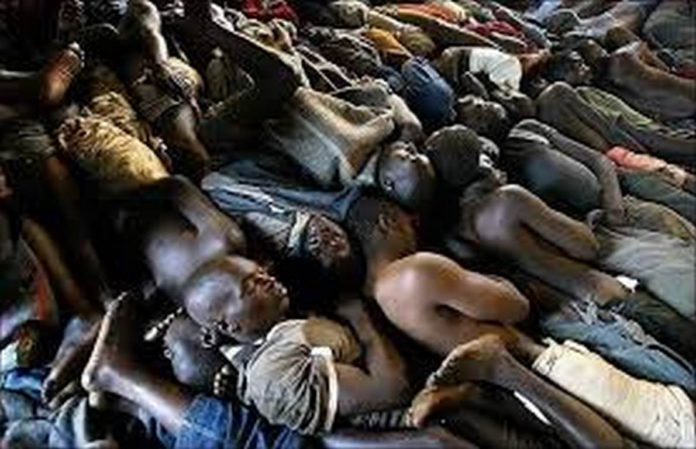A human rights lawyer has called on government to decongest prisons across the country in a bid to curtail the spread of the novel coronavirus among inmates.
Francis-Xavier Sosu in a statement said the overcrowded nature of prisons puts all inmates at risk should one of them get infected with the dreaded pandemic.
He has, as a consequence, called on government “to decongest the prisons by freeing prisoners whose crimes are not a threat to society and who are serving low sentences.”
“Ultimately, it will support the fight against the spread of COVID-19,” Mr Sosu argues.
According to him, “the state stands to benefit more for putting offenders of minor offences to community and other social services.”
“The current situation is costly for governments to be funding prisoners whose economic and other contributions to the state is zero,” he said.
Read his full statement below
On the 3rd of March, 2020 the BBC reported “Iran has temporarily released more than 54,000 prisoners in an effort to combat the spread of the new coronavirus disease in crowded jails”.
The report further stated “Judiciary spokesman Gholamhossein Esmaili told reporters the inmates were allowed out of prison after testing negative for Covid-19 and posting bail”
Can similar measures be taken to help in the combat of the disease in Ghana? Ghana prisons are 52.87% overpopulated. The 44 prison stations in Ghana have a total holding capacity of 9945 inmates but currently house 15,203 inmates.
At the Nsawam prison for instance, currently houses over 3500 inmates although originally built for about 900 inmates. Every single cell contains an average of 44 inmates instead of 20. Of the 44 inmates, 18 sleep on beds and the 26 sleep on the floor. During sleeping hours, the inmates are arranged in a “canned sardine” way. One dares to wake up at night; you may stand until dawn breaks for the doors to be opened.
As a result, there is poor ventilation thereby increasing the room temperature beyond the normal temperature prevailing outside. All these are perfect conditions for the spread of COVID-19.
At the moment, there is no precautionary measure implemented at the gates of the prisons and within the prison yard to ensure convicts, officers and the general public visiting the Nsawam Prison are properly screened. This puts inmates at serious risk of the pandemic. The prison clinic is poorly resourced to even manage or quarantine a suspected condition.
It is therefore suggested for governments to consider the option of freeing prisoners serving minor sentences and whose offence is not a threat to national security.
In the long term, governments should consider seriously the idea of improving the conditions at the prisons. Significantly, there is a need to review the criminal code of Ghana to come to terms with international standards. The state stands to benefit more for putting offenders of minor offences to community and other social services. The current situation is costly for governments to be funding prisoners whose economic and other contributions to the state is zero.
In conclusion, COVID-19 is a threat to the overpopulated prisons of Ghana and thus the need to decongest the prisons by freeing prisoners whose crimes are not a threat to society and who are serving low sentences. Ultimately, it will support the fight against the spread of COVID-19.

